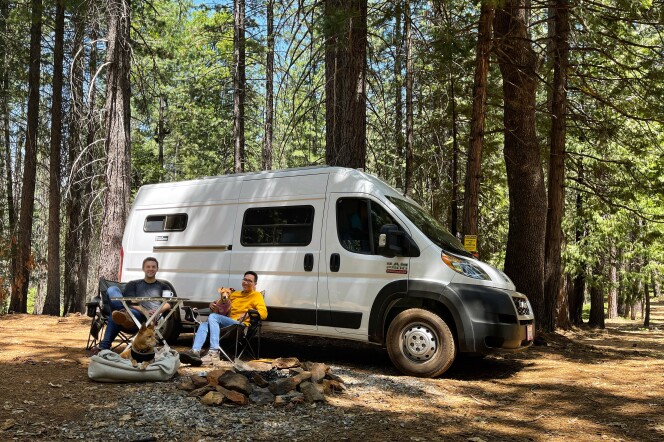This story is free to read because readers choose to support LAist. If you find value in independent local reporting, make a donation to power our newsroom today.
How The DEA's New Marijuana Classification Could Affect California's Cannabis Industry

The U.S. Drug Enforcement Administration is considering reclassifying marijuana from a Schedule I drug to Schedule III. Schedule III drugs, while still controlled substances, are treated differently under the law from Schedule I drugs, which, according to the DEA, have “no currently accepted medical use and a high potential for abuse.”
How could this new classification affect California’s legal cannabis industry? On LAist’s daily news show AirTalk, host Larry Mantle spoke with stakeholders to find out.
The tax man cometh
The biggest benefit of the reclassification of marijuana could come from the IRS. A new classification could allow cannabis businesses to deduct expenses that they currently can’t.
“Right now, they tax these businesses as illegal businesses, and they're not allowed to depreciate or deduct most of their costs,” said Richard Ormond, shareholder at Buchalter, a West Coast-based law firm, where he founded their cannabis law practice group.
Jerred Kiloh, owner of the Higher Path Collective in Sherman Oaks and chairman of the United Cannabis Business Association, is optimistic.
“I just look at my own individual business and I see probably around ... $250,000 a year in federal taxes that I will be able to deduct like a normal business expense, which seems like a really big deal for a company that is just a mom-and-pop trying to make it.”
But Ormond sounded a note of caution. “Until the tax scheme changes, a lot of these businesses are going to be overburdened with licensing fees, taxes, and other government obligations that they have to pay,” he said. “I don't think the tax code is going to be reformed for quite a while.”
Unlocking research
In a statement, Director of the California Department of Cannabis Control Nicole Elliot applauded the DEA’s move, “It will enable new scientific research, so that we can better understand cannabis’ medical value—and also its potential risks.”
UCBA's Kiloh echoed the potential benefits of new research.
“This can only signal to consumers that we're doing more to protect you, we're doing more to understand this plant and its effects on your body, and then that will then signal people to enter the industry with a little less trepidation.”
All the way to the bank
Banking is a significant pain point for businesses selling marijuana, as major banks and payment processors don’t allow cannabis transactions. Kiloh thinks the federal government softening its attitude towards cannabis could “start to signal to credit card companies and banks and processors that … they can move some of their policies away from being so stringent.”
Baby steps
“[Reclassification] is step one of about eight steps that the federal government needs to take to make this a real viable industry,” explained Ormond. According to him, crucial next steps towards a thriving cannabis industry include Congress enacting a safe banking statute and robust interstate commerce. “For this to be a real viable industry, you have to open up those interstate commerce channels.”
What's next
The proposal will be studied by the White House Office of Management and Budget before entering a 60-day public comment period. Lastly, an administrative judge would need to sign off on the decision.
Listen to the conversation
-
They are drilling bore holes to find the water that's likely making the Portuguese Bend landslide worse.
-
Grossman was traveling 81 mph when she struck and killed 11-year-old Mark Iskander and his 8-year-old brother Jacob in a marked crosswalk in 2020.
-
The peak of #VanLife may have ended just as COVID restrictions lifted, the movement's had a lasting impact.
-
Black mustard plants are invasive, ubiquitous and difficult to control.
-
Years ago, the critically endangered Devils Hole pupfish had a very close brush with extinction.
-
For Tacos 5 y 10 co-owner Daniel Martinez, serving food and community is about more than just money — it connects him back home.












